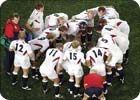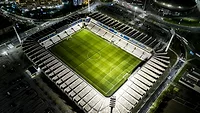International News: Ah, the Sporting, Spying, Cheating Life

Who is spying on whom?
They were head-butting and faking injuries at this year’s soccer World Cup. A doping scandal has knocked down some top teams in the Tour de France. And now media reports contend that it takes more than leather balls to play rugby. Sunday Time Reporter Jon Ungoed-Thomas wrote that the England rugby team hired corporate spies when they stormed to victory at the Rugby World Cup in Australia in 2003.
The rugby charge is being hotly disputed by the English Rugby Football Union (RFU), which stated that their security company had been employed for the World Cup “just to provide a physical presence.” The Sunday Times report, however, suggests the security firm had covertly videotaped opponents’ practices and may have grabbed strategy sheets from under opponent players’ hotel doors.
Security Magazine talked with a British security firm not involved in the situation.
The company, Whiterock, is one of the UK’s main driving force in advising and defending individuals, VIPs, celebrities and blue-chip companies within the financial, scientific, pharmaceutical, petrochemical, electronic, sporting and entertainment sectors from authorized and illicit surveillance devices and from the interception of telephone, FAX and data communications.
Whiterock uses Critical Information Defense and TSCM - Technical Surveillance Counter Measures. Unlike the majority of other companies, who offer TSCM, Whiterock specializes in counter-measures only and has a global emergency response team available at short notice, says Whiterock’s CEO Crispin Sturrock. “I find it rather strange for companies (referring to the one involved in the Rugby incidents) to offer both surveillance and counter-surveillance services - you can’t run with both the hare and the hounds.”
Looking for a reprint of this article?
From high-res PDFs to custom plaques, order your copy today!





